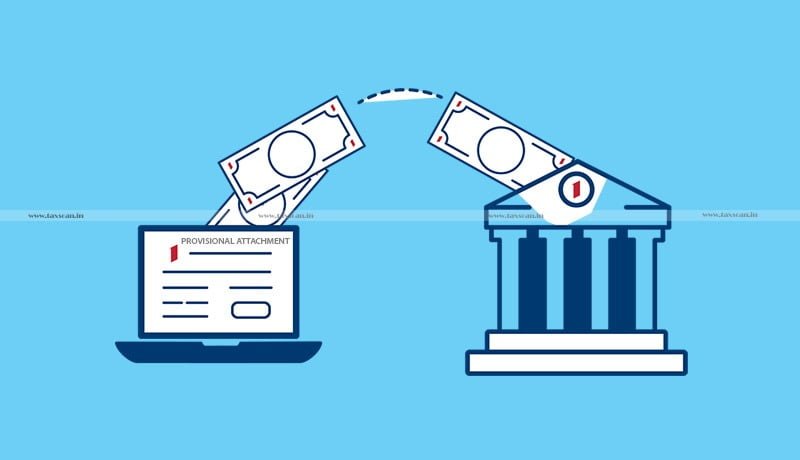GST: Power to order Provisional Attachment of Property including Bank Account is draconian in nature, all conditions to be strictly fulfilled, rules Supreme Court

The Supreme Court has recently held that power to order a provisional attachment of the property of the taxable person including a bank account is draconian in nature and the conditions which are prescribed by the statute for a valid exercise of the power must be strictly fulfilled.
The appeal raises significant issues of public importance, engaging as it does, the interface between citizens and their businesses with the fiscal administration. Legislation enacted for the levy of goods and services tax confers a power on the taxation authorities to impose a provisional attachment on the properties of the assessee, including bank accounts.
The legislation in Himachal Pradesh, which comes up for interpretation in the present case, has conferred the power on the Commissioner to order provisional attachment of the property of the assessee, subject to the formation of an opinion that such attachment is necessary in the interest of protecting the government revenue. What specifically, is the ambit of this power? What are the safeguards available to the citizens? In interpreting the law, the court has to chart a course which will ensure a fair exercise of statutory powers.
The legitimate concerns of citizens over arbitrary exercises of power have to be protected while ensuring that the legislative purpose in entrusting the authority to order a provisional attachment is fulfilled. The rule of law in a constitutional framework is fulfilled when law is substantively fair, procedurally fair and applied in a fair manner. Each of these three components will need to be addressed in the course of interpreting the tax statute in the present case.
The appellant, M/s Radha Krishan Industries challenged the orders issued on 28 October 2020 by the Joint Commissioner of State Taxes and Excise, Parwanoo1 provisionally attaching the appellant’s receivables from its customers. The provisional attachment was ordered while invoking Section 83 of the Himachal Pradesh Goods and Service Tax Act, 20172 and Rule 159 of Himachal Pradesh Goods and Service Tax Rules, 20173. While dismissing the writ petition on grounds of maintainability the High Court was of the view that the appellant had an ‘alternative and efficacious remedy’ of an appeal under Section 107 of the HPGST Act.
The division bench of Justices Dhananjaya Y Chandrachud and M R Shah held that the exercise of the power for ordering a provisional attachment must be preceded by the formation of an opinion by the Commissioner that it is necessary to do so for the purpose of protecting the interest of the government revenue. Before ordering a provisional attachment the Commissioner must form an opinion on the basis of tangible material that the assessee is likely to defeat the demand, if any, and that therefore, it is necessary so to do for the purpose of protecting the interest of the government revenue.
It was clarified that under the provisions of Rule 159(5), the person whose property is attached is entitled to dual procedural safeguards namely an entitlement to submit objections on the ground that the property was or is not liable to attachment; and an opportunity of being heard.
“There has been a breach of the mandatory requirement of Rule 159(5) and the Commissioner was clearly misconceived in law in coming into conclusion that he had a discretion on whether or not to grant an opportunity of being heard,” the Apex Court said.
The court noted that the Commissioner is duty bound to deal with the objections to the attachment by passing a reasoned order which must be communicated to the taxable person whose property is attached.
The Court added, a final order having been passed under Section 74(9), the proceedings under Section 74 are no longer pending as a result of which the provisional attachment must come to an end; and
“The appellant having filed an appeal against the order under section 74(9), the provisions of sub-Sections 6 and 7 of Section 107 will come into operation in regard to the payment of the tax and stay on the recovery of the balance as stipulated in those provisions, pending the disposal of the appeal,” the court while quashing the order of the High Court, said.
To Read the full text of the Judgment CLICK HERE
Support our journalism by subscribing to Taxscan AdFree. We welcome your comments at info@taxscan.in
M/s Radha Krishan Industries vs State of Himachal Pradesh & Ors. , 2021 TAXSCAN (SC) 150

